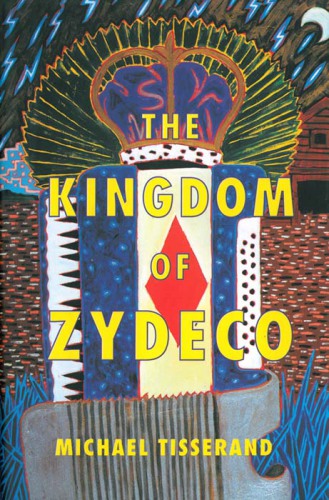
The Kingdom of Zydeco
کتاب های مرتبط
- اطلاعات
- نقد و بررسی
- دیدگاه کاربران
نقد و بررسی

August 31, 1998
The zesty dance music created by black, French-speaking inhabitants of southwestern Louisiana originated early in the 20th century as "house music" for Saturday-night parties at which sharecroppers danced away their troubles. Tisserand, a New Orleans-based music journalist, here uses oral histories, contemporary documents and photos (interspersed throughout), and firsthand research, to chart the prime movers of the genre, from its earliest stirrings to the present. There is Amede Ardoin, whose recordings in the late 1920s and '30s set the standard with their accordion-driven rhythms and vocals that delivered traditional French songs with blues-inflected passion. Clifton Chenier, in the 1950s and '60s, reflected the blend of down-home roots and new cosmopolitanism as black Louisianans took jobs in Houston during the oil boom. Chenier incorporated R&B and rock & roll into the swinging zydeco sound, just as the contemporary musicians Tisserand profiles include hip-hop and rap riffs in their songs. The author certainly does justice to the complexity of the zydeco tradition, and he includes everyone from crossover successes like Buckwheat Zydeco to resolute traditionalists like Boozoo Chavis, yet his narrative is too dense for all but the most devoted aficionado. Colorful though his subjects are, the lengthy quotes from interviews could profitably have been halved. And his claims for zydeco's popularity today are out of date: his prime examples of mainstream assimilation, Paul Simon's album Graceland and the movie The Big Easy, were both released in the 1980s. Nonetheless, this comprehensive assessment is a must for fans. Agent, Richard McDonough; editor, Tim Bent.

























دیدگاه کاربران